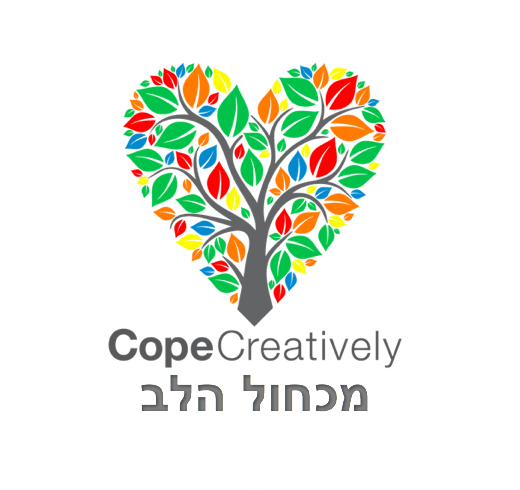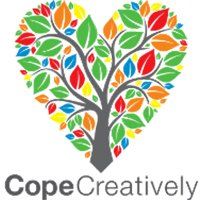Shira Frimer
Psychotherapist and Expressive Arts Therapist

“Art is a wound turned into light.”
-Georges Braque
Welcome to Cope Creatively Clinic, a unique, safe place for emotional expression and psychological healing. In my clinic I offer both classic psychotherapy (talk therapy) and expressive arts therapy. Art therapy is a form of psychotherapy that uses art as a language of the soul. As an expressive medium, art can be used to help clients communicate, overcome stress, and explore different aspects of their own personalities. Art therapy is for adults as well as children. No previous experience in art is necessary!
About me
I have always dreamed of creating a safe space that would allow for exploration of the self though creative expression. After experiencing the healing power of expressive arts first hand, I decided to turn my dream into a reality.
I received my Master's degree in expressive arts therapies at Lesley University, Netanya. After graduating I worked for several years at a center for family therapy and at a center for children fighting serious illness. In 2013, I opened the Cope Creatively Clinic in Rehovot.
I also hold certification in Psychodynamic Psychotherapy and Focused Psychotherapy from The Clinical Applications School of Psychodynamic and Focused Psychotherapy, Israel.
My approach to therapy is inspired by mindfulness, intuitive expression, positive psychology, and play.
Through verbal conversation and creative expression, I encourage my clients to face their challenges in a safe and creative way while moving toward personal growth and fulfillment. I have over 10 years of experience working with children, adolescents and adults.
What is Art Therapy?
Art therapy integrates psychotherapeutic techniques with the creative process to improve mental health and well-being. The American Art Therapy Association describes art therapy as "a mental health profession that uses the creative process of art making to improve and enhance the physical, mental and emotional well-being of individuals of all ages. It is based on the belief that the creative process involved in artistic self-expression helps people to resolve conflicts and problems, develop interpersonal skills, manage behavior, reduce stress, increase self-esteem and self-awareness, and achieve insight."
The art-making process involves sensory, cognitive, emotional, problem-solving, and planning skills, and can assist in many aspects of personal development.
Therapy for children and teens
Children are naturally creative, and it is usually easier for them to draw a picture as opposed to answering questions directly. They may be reluctant or even hostile about discussing certain topics. Creating artwork is a non-threatening venue that allows kids to tackle tough issues in a creative way. Talking to the children about their drawings or paintings and helping them interpret the art can provide therapists with the opening they need to get at the heart of the problems affecting their young patients.
Art therapy can be used to help children cope with:
• Fear, anxiety, sadness, anger, stress
• Low self esteem, social difficulties
• Major life transition
• Learning disabilities, ADHD, ASD
• Behavioral problems, school aversion, ODD
• Divorce
• Childhood trauma involving physical, mental, or sexual abuse
• Death of a family member or friend
• Chronic physical disease
• Physical disability, parent or sibling with a disability
• Challenges of serious diseases like cancer
• Mental disorders such as schizophrenia or depression
• Low self esteem, social difficulties
• Major life transition
• Learning disabilities, ADHD, ASD
• Behavioral problems, school aversion, ODD
• Divorce
• Childhood trauma involving physical, mental, or sexual abuse
• Death of a family member or friend
• Chronic physical disease
• Physical disability, parent or sibling with a disability
• Challenges of serious diseases like cancer
• Mental disorders such as schizophrenia or depression
In addition to these challenges, art therapy can help children relieve stress, increase awareness of self, regulate emotion and develop healthy and effective coping skills. Children of all ages, nationalities, races and cultures can benefit from art therapy. Programs are developed around a child’s strengths and abilities, so the kid can use the medium even if he or she has never picked up a crayon before.
Therapy for Adults
************
Psychotherapy for Adults
Psychotherapy, or talk therapy, is a way to help people with a broad variety of mental illnesses and emotional difficulties. Psychotherapy can help eliminate or control troubling symptoms so a person can function better and can increase well-being and healing.
Problems helped by psychotherapy include difficulties in coping with daily life; the impact of trauma, medical illness or loss, like the death of a loved one; and specific mental disorders, like depression or anxiety. There are several different types of psychotherapy and some types may work better with certain problems or issues. Psychotherapy may be used in combination with medication or other therapies.
Expressive Arts Therapy for Adults
Many adults automatically think of children when they think of art therapy because society shapes us to believe that art is for kids. This cannot be further from the truth! Adults often have defenses in place that prevent them from expressing themselves from a place of intuition and creativity. As adults become further detached from their creative nature, they become further detached from their authentic selves.
In art therapy, the art functions as a way to break through these barriers and defenses. There is no expectation in art therapy to be a “skilled” artist, as art therapy focuses on the process of making art, not the product. Art therapy is a tool for growth and healing for everyone, not just for children. The creative side of an adult longs to be nurtured after so many have neglected it due to “the responsibilities of life״.


